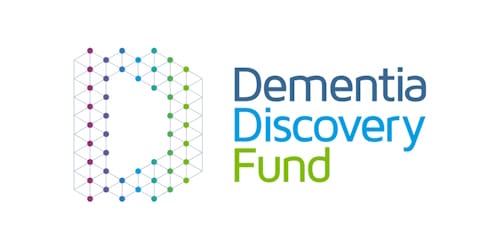As we approach the second quarter of 2024, the SV Health Investors Partners investing out of the Dementia Discovery Fund (DDF) have summarised the key themes and topics that are likely to be front and centre over the next nine months:
1. Strategic and investor interest in neuro is likely to increase. We are at a pivotal point in CNS drug development: recent clinical successes and regulatory approvals have shown that it is possible to develop efficacious drugs for neuro indications. This combined with the significant unmet need and commercial white space, presents a substantial opportunity for investors.
We have already seen significant appetite to be a part of this growing opportunity driven by the aforementioned success. There were several large CNS M&A transactions in the second half of 2023, including Karuna Therapeutics, acquired by BMS, Cerevel Therapeutics, acquired by AbbVie, Caraway Therapeutics, a DDF portfolio company acquired by Merck, Mitokinin acquired by AbbVie, and Dtx Pharma, acquired by Novartis. Despite some clinical and regulatory setbacks in Q1 2024, (failure of the recent Phase 3 study for Relyvrio in ALS and delay of the possible regulatory approval of donanemab for AD), we do not expect this strategic interest to wane. While Cerevel and Karuna have assets close to market, we expect the excitement to push large pharma companies to look more at preclinical M&A and use biotech to build out their CNS pipelines, especially given the pipeline of exciting and transformational new mechanisms. Notably, DDF portfolio companies have been attracting significant interest, and we expect this to continue to build in 2024 as many of our portfolio companies will hit pre-clinical and clinical development milestones. We also expect to see at least one top 10 pharma making a return to neuroscience and actively seeking to build a new pipeline. So overall, we anticipate there will be continued deal making in the CNS space in 2024.
2. There will be an inevitable expansion of clinical infrastructure, including (outpatient) infusion centres and imaging capacity, to meet the demands of the anti-amyloid drug class, paving the way for future therapeutic approaches in dementia and enabling more rapid adoption.
The roll-out of Leqembi in the second half of 2023 highlights the importance of early diagnosis and improved clinical infrastructure for administering antibody drugs. The roll-out of the drug has been held back by a lack of clinical infrastructure, with the current use limited to large dementia centres that have the necessary equipment, including PET and MRI imaging and infusion centres, although future developments (e.g., subcutaneously administered drugs, fewer imaging requirements due to the use of soluble biomarkers or drugs with lower risk of side effects) may reduce some need.
Given the nature of neurodegenerative diseases, early diagnosis, and therefore, earlier therapeutic intervention, is likely to improve the efficacy of all potential therapeutics, so increased diagnostic infrastructure will have benefits beyond just the anti-amyloid class.
3. Recent improvements in understanding the mechanistic basis of disease and novel drug discovery platforms have yielded the next generation of therapeutics – enabled by GWAS, biomarker studies, and novel drug discovery platforms.
In 2024, we expect to see clinical data read-outs for several novel targets that will provide further insights into the efficacy of these approaches and our understanding of pathology. For example, accumulating evidence from genome-wide association studies suggests that immune pathways are involved in a person’s resilience to disease.
Since the discovery of immune and microglia genes associated with the risk of developing Alzheimer’s, efforts have been ongoing to leverage these targets and pathways to create efficacious therapeutics. One microglia gene that has attracted significant attention since it was first linked to Alzheimer’s in 2013 is TREM2. Several clinical drugs have sought to target this mechanism in the years since this discovery.
DDF portfolio company, Alector Therapeutics, has an antibody-drug (AL002) in a Phase 2 clinical trial in Alzheimer’s disease that upregulates TREM2 activity. Towards the end of 2024, Alector will share data from this trial to determine whether the drug delays cognitive decline in Alzheimer’s patients. The clinical data from this trial will be informative for the entire field and provide insights into whether targeting microglia is a viable approach to treating Alzheimer’s.
Beyond novel therapeutics, 2024 is expected to be a triumphant year for the acceleration of novel delivery approaches. As an example, DDF portfolio company, AviadoBio, is expected to enroll the first cohort of patients in ASPIRE-FTD, a Phase 1/2 trial evaluating AVB-101, a gene supplementation therapy for frontotemporal dementia patients with disease-causing mutations in the PGRN gene, and deliver significant clinical data AviadoBio uses a novel brain delivery approach that enables improved gene supplementation in the brain (where it is needed) while also reducing the risk of immune reaction (and thus, the need for immunosuppressive drugs).
4. More broadly, the venture financing market is improving for quality companies; the market is seeing strong interest in first financings for innovative start-ups and for companies that will deliver clinical data within the financing round. We expect the public markets to continue to be challenging in 2024, but we view the public market as an opportunistic strategy and build companies that can take advantage of the strategic interest in neuro for BD and M&A. This combination of factors should enable companies in the space to take advantage of the improved financing, BD, and M&A markets to finance their innovation and deliver returns.
